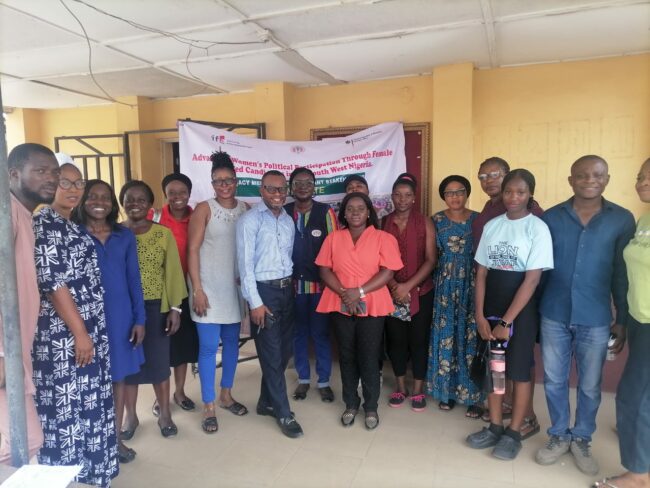The German government in collaboration with a non-governmental organisation, Hope for Family Development Initiative (HFDI) is set to train 300 women in three Southwest states on campaign strategies, leadership skills, and political engagement.
The project, tagged ‘Advancing Women’s Political Participation through Female Elected Candidates in South West Nigeria’, would be held in Osun, Oyo, and Ekiti states.
Speaking during a media parley held at NUJ Press Center, Osogbo, HFDI Program Manager, Adeola Falana, said the region still faces significant disparities in political representation despite the increase in the number of women holding political positions in the country.
Falana said the NGO would be implementing capacity-building training for women aspirants, town halls meeting with community stakeholders, consultative meetings with stakeholders, and sensitization workshops for young girls on the importance of women’s involvement in politics.
She called on stakeholders to work collectively to support women’s leadership and ensure women have an equal voice in shaping the future of our communities and nation.
According to her, “Advancing Women’s Political Participation through Female Elected Candidates in the South West Nigeria project is a project funded by the German government and being implemented in Nigeria by Hope for Family Development Initiative (HFDI).
“The project is aimed at increasing the participation of women in political processes thereby promoting gender equality. A minimum of 100 women will be trained in campaign strategies, leadership skills, and political engagement over the project duration.
“Women’s political participation is crucial for achieving gender equality and inclusive governance. Despite progress, South West Nigeria still faces significant gender disparities in political representation.
“Empowering female elected candidates is essential for advancing women’s political participation and achieving gender equality in South West Nigeria.
“By addressing the barriers women face and implementing targeted strategies, we can create a more inclusive and representative political system that benefits all members of society.
“It is imperative that stakeholders at all levels work collaboratively to support women’s leadership and ensure that women have an equal voice in shaping the future of our communities and nation.”
